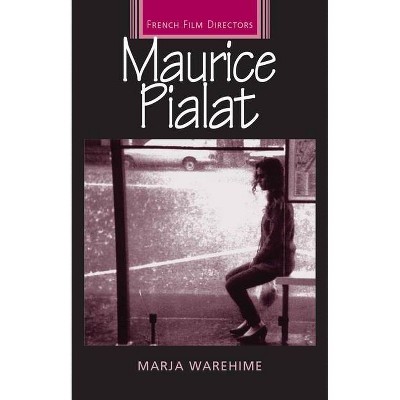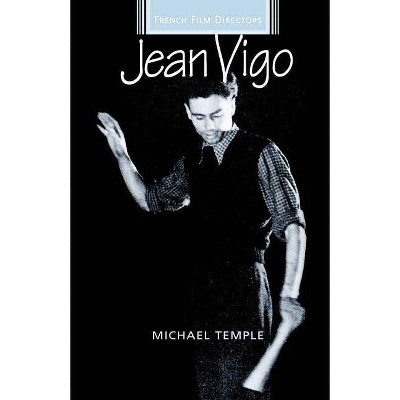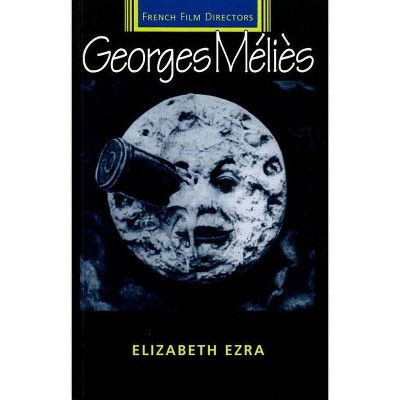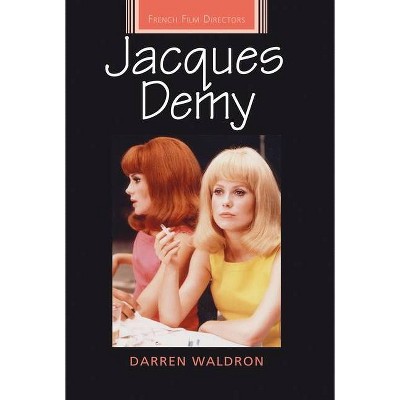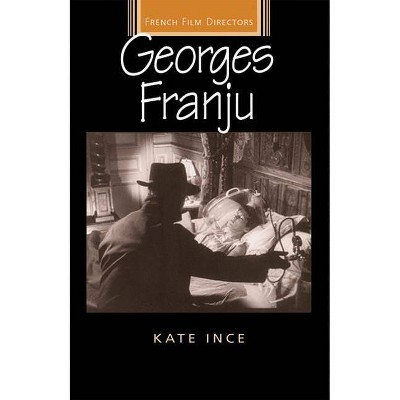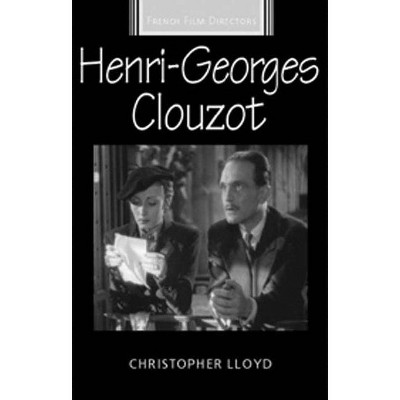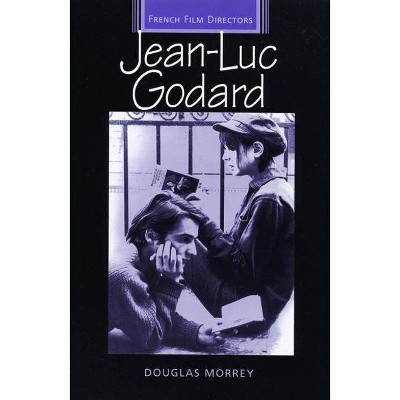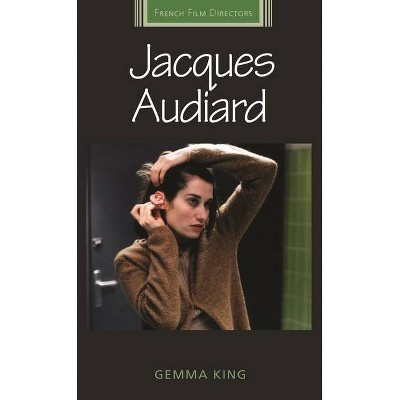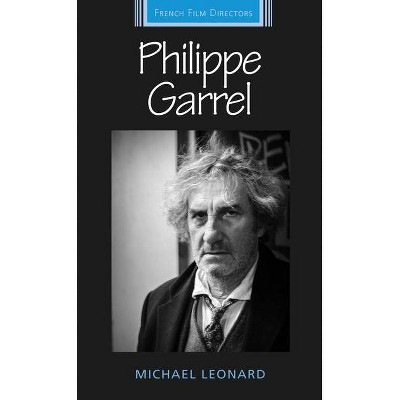Julien Duvivier - (French Film Directors) by Ben McCann (Paperback)
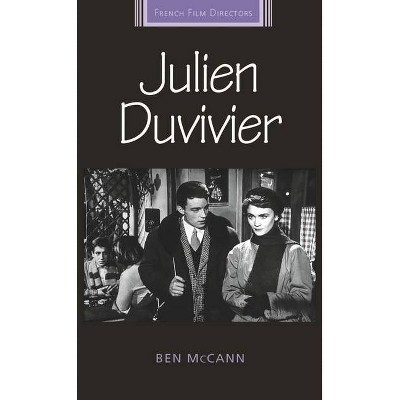
Similar Products
Products of same category from the store
AllProduct info
<p/><br></br><p><b> About the Book </b></p></br></br>Duvivier was a giant of classic French cinema with a career spanning key moments of French film history. This analysis goes beyond its historical range to engage with key debates in film studies: notably auteurism, stardom and questions of the national.<p/><br></br><p><b> Book Synopsis </b></p></br></br><p> </p><p>This book is the first ever English-language study of Julien Duvivier (1896-1967), once considered one of the world's great filmmakers. Jean Renoir declared that <em>'If I were an architect and I had to build a monument to the cinema, I would place a statue of Julien Duvivier at the entrance'. </em>He was beloved by Orson Welles and John Ford, while Ingmar Bergman once admitted that of all the careers that he would have liked to have had, it would be Duvivier's. <br /> <br /> The book offers contextual and analytical readings of Duvivier's films that identify his key themes and techniques, trace patterns of continuity, and explore critical assessments of his work over time. Throughout a five-decade career, Duvivier zigzagged between multiple genres - <em>film noir</em>, comedy, literary adaptation - and made over sixty films. His career intersects with important historical moments in French cinema, like the arrival of sound film, and the development of 'poetic realism'. He worked within the Hollywood studio system in the 1940s, and returned to a much-changed France in the 1950s.<br /> <br /> Often dismissed as a marginal figure in French film history, this groundbreaking book illustrates Duvivier's eclecticism, technical efficiency and visual fluency in films such as <em>Panique</em> (1946) and <em>Voici le temps des assassins</em> (1956), alongside more familiar works like <em>La Belle Equipe</em> (1936) and <em>Pépé le Moko</em> (1937). It will appeal particularly to scholars and students of French cinema looking for examples of a director who could comfortably straddle the realms of the popular and the <em>auteur</em>.</p><p/><br></br><p><b> From the Back Cover </b></p></br></br>This book is the first ever English-language study of Julien Duvivier (1896-1967), once considered one of the world's great filmmakers. Jean Renoir declared that <i>'If I were an architect and I had to build a monument to the cinema, I would place a statue of Julien Duvivier at the entrance'. </i>He was beloved by Orson Welles and John Ford, while Ingmar Bergman once admitted that of all the careers that he would have liked to have had, it would be Duvivier's. The book offers contextual and analytical readings of Duvivier's films that identify his key themes and techniques, trace patterns of continuity, and explore critical assessments of his work over time. Throughout a five-decade career, Duvivier zigzagged between multiple genres - <i>film noir</i>, comedy, literary adaptation - and made over sixty films. His career intersects with important historical moments in French cinema, like the arrival of sound film, and the development of 'poetic realism'. He worked within the Hollywood studio system in the 1940s, and returned to a much-changed France in the 1950s. Often dismissed as a marginal figure in French film history, this groundbreaking book illustrates Duvivier's eclecticism, technical efficiency and visual fluency in films such as <i>Panique</i> (1946) and <i>Voici le temps des assassins</i> (1956), alongside more familiar works like <i>La Belle Equipe</i> (1936) and <i>Pépé le Moko</i> (1937). It will appeal particularly to scholars and students of French cinema looking for examples of a director who could comfortably straddle the realms of the popular and the <i>auteur</i>.<p/><br></br><p><b> Review Quotes </b></p></br></br><br>'McCann's study of Duvivier argues coherently for the director's status as an auteur, particularly with its emphasis on recurring themes and its descriptive, but informative, discussions of a range of key films. This book fits well within the French filmmakers series, but can also stand individually as a case study on a long neglected director.' Gillian Kelly, University of Glasgow, <i>Historical Journal of Film, Radio and Television</i>, Vol. 37, No. 3 'McCann provides a wealth of information on the director's life, times and work as well as an accessible yet rigorous critical study of Duvivier's cinema which brings Duvivier into line with his other more revered contemporaries.... If, as McCann argues, Duvivier's work is ripe for re-evaluation, then this book is surely the guide to such an endeavour. Indeed, it might serve well as a companion to the revisiting of Duvivier's cinema or, for those familiar only with his best-known films, an exhaustive introduction to those films which, for one reason or another, found their way into the ashcan of cinema history. Felicity Chaplin, Monash University, <i> senses of cinema</i>, No. 87 (June 2018)<br><p/><br></br><p><b> About the Author </b></p></br></br>Ben McCann is Associate Professor of French Studies at the University of Adelaide
Price History
Cheapest price in the interval: 29.95 on November 8, 2021
Most expensive price in the interval: 29.95 on December 20, 2021
Price Archive shows prices from various stores, lets you see history and find the cheapest. There is no actual sale on the website. For all support, inquiry and suggestion messagescommunication@pricearchive.us
